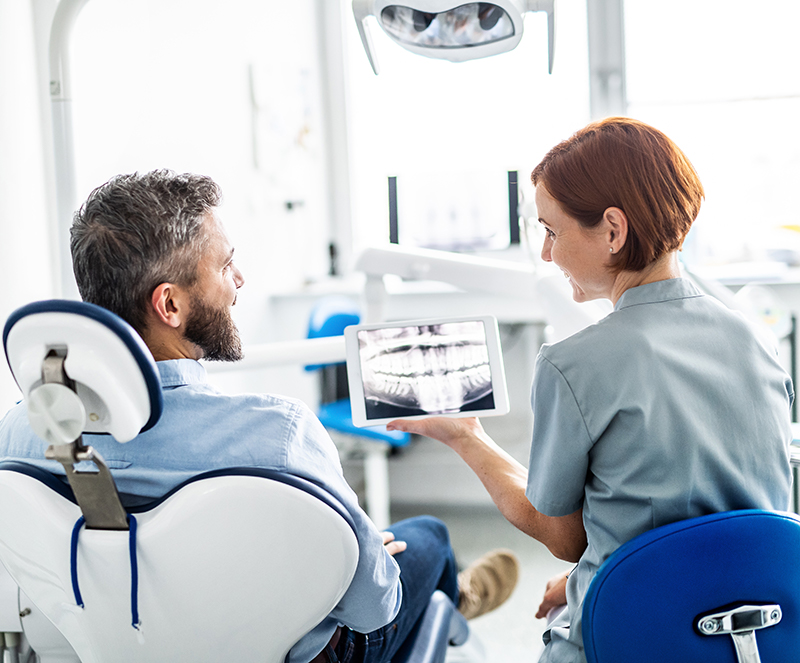Oral Cancer Screenings: Why Early Detection Matters
Oral cancer ranks as the 13th most commonly diagnosed cancer and can affect any part of the mouth, including lips, tongue, cheeks, and throat. While it's relatively rare—especially if you don't use tobacco or have a family history—routine dental checkups are key for early detection.
During each visit, we perform an oral cancer screening and advise patients to follow up with their doctor if any unusual lesions or lumps are found. It’s always better to be safe and proactive about your oral health.

Starting Your Screening
The first step in screening for oral cancer is the completion of your dental and medical history, which includes a review of:
Comprehensive Oral Exam
If anything is concerning, we may perform an extraoral and intraoral examination, where we:
Symptoms of Oral Cancer
It is important to note that while these symptoms may be caused by other, less serious oral health issues, they should still be checked by our office at your next routine visit. Common symptoms include, red or white spots or sores anywhere in the oral cavity, a sore that bleeds easily or does not heal, a lump, thickening, or rough spot, pain, tenderness, or numbness anywhere in your mouth or on your lips, or difficulty chewing, swallowing, speaking, or moving your jaw or tongue. There are many other symptoms to lookout for, so it is always best to call us for an appointment if you experience or see anything alarming.
Diagnosis and Treatment
Oral cancer screenings involve an examination of the oral cavity as a whole – not just your teeth. This helps detect cancerous and pre-cancerous conditions.
If the early stages of oral cancer are detected, it is typically treated with surgery or radiation. Advanced cases will combine surgery and radiation as the most common treatment. In the late stages, radiation and chemotherapy are the usual combination, with or without surgery.
Prevention
With all cancers, the best way to prevent oral cancer starts with you – avoid all tobacco products, only drink alcohol in moderation, maintain a healthy and balanced diet, and limit your exposure to the sun (this is significantly more important than sunblock, because sunblock can only be as effective as your ability to properly apply it, while limited exposure always works best).
There is also a link between certain types of the HPV virus and throat cancer. Avoiding risky behavior and receiving the HPV vaccine can be considered to help prevent this cancer.





